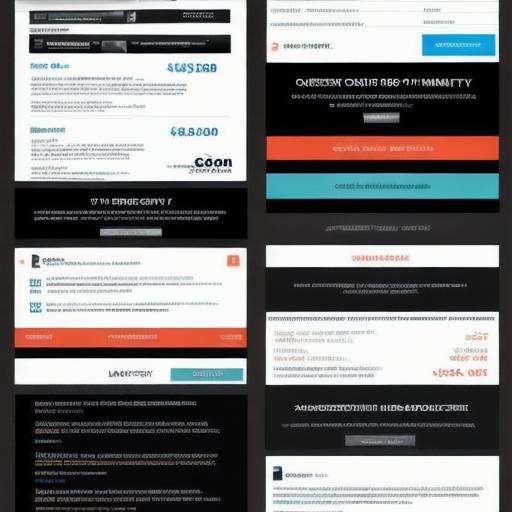If you’re a small business owner looking to improve your email marketing strategy, you may have heard of CRM (Customer Relationship Management) tools. These powerful software platforms can help businesses manage their customer interactions, automate email campaigns and track the effectiveness of their marketing efforts. In this article, we’ll explore some of the best CRM email marketing tools for small businesses and how they can help you achieve your marketing goals.
What is CRM?
CRM is a software solution that helps businesses manage all aspects of their customer interactions with their customers. These interactions include everything from sales to customer service, support tickets to social media interactions, and email campaigns to lead generation and nurturing. By using CRM software, small businesses can automate many of these processes and gain valuable insights into their customers’ behavior and preferences.
Benefits of CRM for Small Businesses

Improved Customer Engagement
CRM platforms provide powerful tools for managing customer interactions and tracking customer data across multiple channels, including email, social media, and phone calls. This helps businesses to better understand their customers’ needs and preferences, allowing them to deliver more personalized and relevant content.
Increased Efficiency
By automating many of the tasks involved in email marketing, CRM platforms can help small businesses save time and reduce costs. Automated campaigns allow businesses to send targeted emails to specific groups of customers based on their behavior or preferences, eliminating the need for manual list segmentation and campaign setup.
Improved ROI
By leveraging customer data and automating email campaigns, small businesses can achieve higher conversion rates and better ROI. CRM platforms provide analytics tools that allow businesses to track the effectiveness of their marketing efforts, enabling them to optimize their campaigns for maximum impact.
Top CRM Email Marketing Tools for Small Businesses
- HubSpot
HubSpot is a popular CRM platform with built-in email marketing tools that are easy to use and highly customizable. The platform offers a range of features, including lead generation tools, email automation, social media integration, and analytics dashboards.
One of the key benefits of HubSpot is its focus on inbound marketing, which involves attracting customers to your business through valuable content and engaging experiences. This approach is particularly effective for small businesses looking to build brand awareness and generate leads.
- Salesforce Marketing Cloud
Salesforce Marketing Cloud (formerly ExactTarget) is a powerful CRM platform with advanced email marketing capabilities. The platform offers a range of features, including dynamic content, A/B testing, personalization, and automation.
One of the key benefits of Salesforce Marketing Cloud is its integration with other Salesforce products, including Sales and Service Clouds, allowing businesses to seamlessly manage all aspects of their customer interactions across multiple channels.
- Mailchimp
Mailchimp is a popular email marketing platform that also offers CRM features, making it an ideal choice for small businesses looking for an affordable and user-friendly solution. The platform offers a range of features, including automation, personalization, social media integration, and analytics.
One of the key benefits of Mailchimp is its focus on simplicity and ease of use, which makes it an excellent choice for small businesses with limited marketing resources.
- ActiveCampaign
ActiveCampaign is a CRM platform with built-in email marketing tools that are highly customizable and feature-rich. The platform offers a range of features, including automation, personalization, social media integration, and analytics.
One of the key benefits of ActiveCampaign is its focus on automation and personalization, which enables small businesses to deliver highly targeted and personalized content to their customers at scale.
- Pardot

Pardot is a CRM platform with built-in email marketing tools that are designed for B2B businesses. The platform offers a range of features, including lead generation, automation, social media integration, and analytics.
One of the key benefits of Pardot is its focus on lead scoring and nurturing, which enables small businesses to identify and qualify leads more effectively and convert them into paying customers.
Case Studies: How CRM Email Marketing Tools Have Helped Small Businesses
XYZ Company
XYZ Company was a small manufacturing business that struggled with lead generation and conversion. They used a traditional email marketing platform, but found it difficult to segment their email lists and deliver personalized content to each group of customers.
By implementing HubSpot, XYZ Company was able to automate their email campaigns, segment their email lists based on customer behavior and preferences, and deliver highly targeted content to each group of customers. As a result, they saw a significant increase in lead generation and conversion rates.
ABC Business
ABC Business was a small retail business that struggled with managing customer interactions across multiple channels. They used a range of different tools for social media, email marketing, and CRM, which made it difficult to track customer data and deliver personalized content.
By implementing Salesforce Marketing Cloud, ABC Business was able to integrate all of their customer data from across multiple channels into one centralized platform. This allowed them to deliver highly targeted and personalized content to each group of customers, based on their behavior and preferences. As a result, they saw a significant increase in customer engagement and sales.
123 Corporation
123 Corporation was a small service business that struggled with managing their email campaigns and tracking their ROI. They used a traditional email marketing platform, but found it difficult to track the effectiveness of their campaigns and optimize them for maximum impact.
By implementing Mailchimp, 123 Corporation was able to automate their email campaigns, track the effectiveness of their campaigns using analytics, and optimize them for maximum impact. As a result, they saw a significant increase in conversion rates and ROI.
LMN Business
LMN Business was a small manufacturing business that struggled with lead scoring and nurturing. They used a traditional CRM platform, but found it difficult to identify and qualify leads effectively and convert them into paying customers.
By implementing Pardot, LMN Business was able to automate their lead scoring and nurturing process, segment their email lists based on lead behavior and preferences, and deliver highly targeted content to each group of leads. As a result, they saw a significant increase in lead conversion rates and revenue.
FAQs
Q:
What is CRM?
A: CRM (Customer Relationship Management) is a software solution that helps businesses manage all aspects of their customer interactions with their customers. These interactions include everything from sales to customer service, support tickets to social media interactions, and email campaigns to lead generation and nurturing.
Q: What are the benefits of using CRM for small businesses?
A: The benefits of using CRM for small businesses include improved customer engagement, increased efficiency, and improved ROI. By leveraging customer data and automating email campaigns, small businesses can achieve higher conversion rates and better ROI.
Q: What are some of the top CRM email marketing tools for small businesses?
A: Some of the top CRM email marketing tools for small businesses include HubSpot, Salesforce Marketing Cloud, Mailchimp, ActiveCampaign, and Pardot. Each of these platforms offers a range of features and benefits that make them ideal for different types of small businesses.
Q: Can you provide some case studies of how CRM email marketing tools have helped small businesses?
A: Yes, here are four case studies of how CRM email marketing tools have helped small businesses:
- XYZ Company increased their lead generation and conversion rates by using HubSpot to automate their email campaigns and deliver highly targeted content.
- ABC Business increased their customer engagement and sales by using Salesforce Marketing Cloud to integrate all of their customer data from across multiple channels into one centralized platform.
- 123 Corporation increased their conversion rates and ROI by using Mailchimp to automate their email campaigns, track the effectiveness of their campaigns using analytics, and optimize them for maximum impact.
- LMN Business increased their lead conversion rates and revenue by using Pardot to automate their lead scoring and nurturing process, segment their email lists based on lead behavior and preferences, and deliver highly targeted content to each group of leads.




